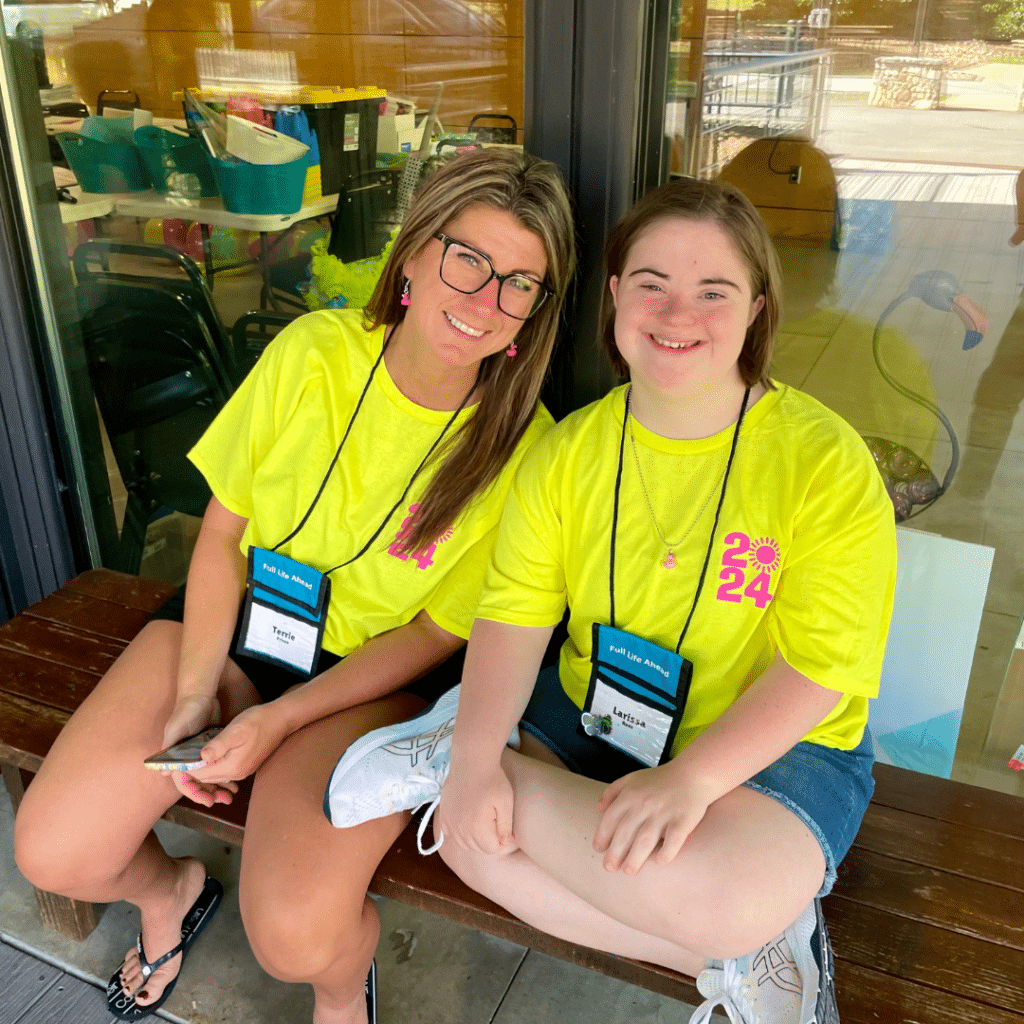I remember the day Mikelle told me she wanted to move out of our condo into a place of her own like it was yesterday.
It was the springtime of her graduation year. It was a Saturday evening, the smell of blossoming apple trees filled the air. As part of our ritual back then, Saturday night was movie night. Tonight’s selection was “The Other Sister” starring Diane Keaton and Juliette Lewis. Gary Marshall was the director.
If you are not familiar with the movie, Juliette Lewis’s character experiences an intellectual/developmental disability. The wedding preparations for her sister’s wedding both frustrate her desire to “grow up, too” inspiring the idea of moving out on her own. Except, Diane Keaton’s character is terrified of the idea. Mikelle and I related to both of these characters. Mikelle’s determination ran over my objections.
The decision on where to live is not an easy one for anyone and is often more complicated for someone with a disability and not always permanent but worthy of pursuing if desired. Mikelle lived successfully on her own for five years. It worked until it didn’t. When she had enough of roommate turnover, I moved in with her to help stabilize her life. Yet, Mikelle moving out on her own for that time period, first renting, then buying was perhaps the smartest decision we ever made.
Mikelle purchased her condo with her own money, a few grants and support from the Colorado Housing Finance Authority and a Section 8 voucher. She was fortunate in purchasing a bank-owned property in 2007 and now has a couple hundred thousand in equity which does not count against her Social Security benefits. I encourage you to investigate this amazing program.
Housing Finance Authorities are part of a national program which works with Section 8 vouchers. A good thing to know is rental vouchers can be moved from state to state. Once a house is purchased the vouchers continue to help with the mortgage payments just like the rental vouchers, but you cannot move them from house to house. Here is the link to Alabama’s program
Why should you consider the homeownership option?
I put home ownership on my “Top 10 List” of the most successful long term support strategies to consider as conduct your futures planning. Let’s take a look at the advantages of home ownership.
According to the World Institute on Disability, there are many good reasons to own a home, if you are ready and can accept the responsibilities of homeownership.“First, all the economic research suggests that there are three primary paths Americans have traditionally utilized to build wealth across generations. Education, small business development and home ownership are proven asset-building and wealth creation paths, even if you have a disability.”
Homeownership puts your adult child with disabilities in a position of ownership which greatly reduces the chance they will move from facility to facility depending on the needs of a residential provider.
Note: Whoever owns the home, owns the rules. That is not the case in most residential programs. What sweetens this idea is most Medicaid waiver programs allow an individual to hire their own supported living and personal care support staff or organization. I can tell you, Mikelle loves making the rules.
I am warning you, decisions about living arrangements can produce fear and stress, which can affect our decision-making abilities. Feeling anxious is normal in these circumstances. Planning helps to alleviate stress.
Good thing you are a planner. I know you have been doing it since your child was born.
As special needs parents, there are many choices to make as you run the obstacle course of raising a child with disabilities. From the minute your child is diagnosed with their “special need,” you set out in pursuit of the best life possible for your child. Your starting point is tracking down experts, chasing resources and seeking ways to find “normal” and “typical.” You climb over the rugged, sharp edges of bureaucracy weathering rejection and system inefficiencies in your pursuit of the American dream for your children. The dream for our “typical children” is a good job, a loving partner and a “home of their own”.
The typical plan for our children with disabilities is to graduate and get on Social Security Income. The plan needs to expand beyond SSI and Medicaid, perhaps a job, to where is the best place for them to live.
Developing a strategy for learning about needed opportunities is a skill set critical to parenting. This includes a H.O.P.E. Team focused on the financial future of your family, too. It is your safety net.
Self-determination is more than a meeting and a piece of paper. It is economic. It is your family member’s ability to dictate the terms of their own future and receive the support they need to do it successfully. We can focus our efforts on Supported Living, whatever that means for your family member. We are aiming for their piece of the American Pie.
This blog is part of a series focusing on living and housing options for people with disabilities. In the next couple of blogs, we will look at how other families are pursuing a long term housing plan.
Your To-Do List
- Start the discussion.
- Do some research online.
- Make a “Where I want to Live” scrapbook. Get a few home decorating magazines and make a collage or scrapbook detailing colors, location and type of home. Mikelle likes condos close to shopping, others like homes in the county.
That is a good start. See you next month!


